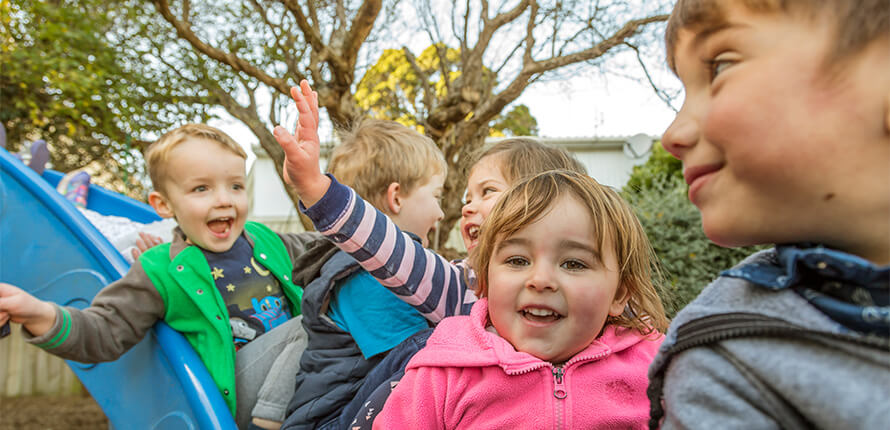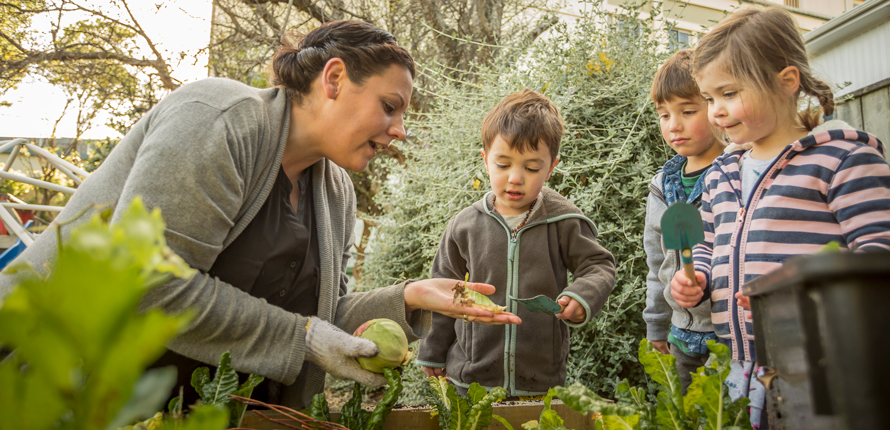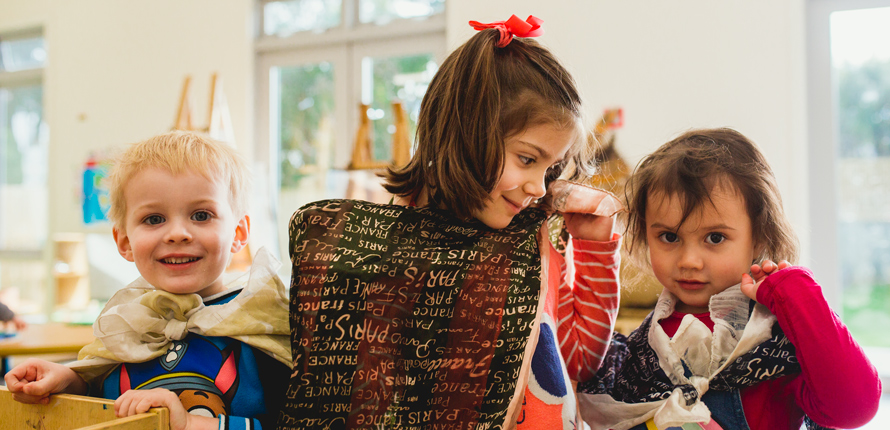You’re Raising a Global Citizen
The search for the right early learning and care for our children is full of ‘what ifs’. “What if my child doesn’t get along with the other children?” “What if they miss me while I’m at work?” “What if they don’t eat anything or go to sleep?” “Will they be safe and get to express themselves?”
We can get so caught up in our worries that we forget the positive side of these ‘what ifs’. “What if they love their new friends?” “What if they eat all their lunch?” “What if they experience lots of new and interesting challenges?” “What if they’re nurtured and cared for in a way that sees their personality flourish and shine?”

Finding the right early learning option for your child isn’t always easy. But this journey can provide the perfect opportunity to look at what environment you believe your child will flourish in, and to get clear on what you and your whānau value, and what do you think will prepare and support your child to thrive in our rapidly changing world?
You are raising a child who will choose to communicate with the world – right from their living room. You are raising a child who will choose to get to know people from all religions, cultures and walks of life. You are raising a child who will choose to take care of their world. You are raising a global citizen.
Raising a Global Citizen
Here in Aotearoa, we have a world renowned early learning curriculum – Te Whāriki, which provides a framework for New Zealand teachers and educators to recognise our children as competent and confident learners. Te Whāriki places importance on promoting and protecting the cultures and languages of all children in New Zealand, inspiring them to become global citizens with a strong understanding of their heritage and the world that they are a part of. Barnardos is proud to use Te Whāriki as the framework for learning in both our Centre and Home Based learning environments.
Often parents need some expert advice to find out what aspects of early learning are important to them when they start their search. Often this comes from friends and family. We know that deciding between Home Based and Centre-based learning environments ultimately depends on how your child learns best and what supports you as a busy parent. Barnardos Early Learning Advisors are here to help parents navigate the world of early learning every day and are experts at pairing parents with centres and educators that will suit their child’s needs. Our advisors tell us that parents have lots of different reasons for wanting their child to be in one place rather than another, and many of those reasons are a desire to have exposure to cultures and languages.
For some it’s about regaining a lost cultural heritage so that their children can relate to their grandparents, for others, it’s purely about the developmental benefits that learning another language can bring.
Whether you’ve been browsing the internet or talking to other parents about the options for your under 5, you have probably seen numerous studies that say learning another language at an early age is highly beneficial for a child’s development. Research, like Krista Byers-Heinlein and Casey Lew-Williams’ “Bilingualism in the Early Years: What the Science Says” suggests that it’s not just communication skills that benefit from exposure to multiple languages - problem solving, multitasking and social understanding are often stronger in children who are familiar with more than one language.
The evidence is also clear that learning a language at an early age, when brains are still rapidly developing, can help develop those crucial neural pathways and help to make multiple languages stick for the rest of a child’s lifetime.
Our Early Learning Advisors certainly see this in their work with children and families, saying that some families talk about how just hearing different languages makes connections in the brain so that children find it easier to learn other languages later in life.

Of course, by introducing your child to other cultures through a love of language, you’re also doing much more than exposing them to a new language, you’re preparing them to be a knowledgeable and open-minded global citizen in the future.
In a perfect world, we’d all be able to take our children on trips around the globe and enrol them in private language courses. But for most of us, time, money, school and work commitments prevent that from being a reality. Luckily, we live in a digital world with language rich media, books and even food, it is all available to us at the touch of a button. We’re also fortunate to live in a country with more than one national language – and a unique bi-cultural identity. New Zealand is home to people who speak a rainbow of over 160 languages and belong to around 200 different ethnicities. Thanks to Te Whāriki, early learning in Aotearoa supports Teachers and Educators to celebrate and promote this diversity. Barnardos incorporates Te Reo Māori and home languages in all our Early Learning Centres and Home Based learning environments. Educators and Teachers at Barnardos come from all over the world: North and South India, Sri Lanka, Bangladesh, Iraq, Palestine, Samoa, Arabian countries, Philippines, Fiji and Europe, and are ready to share their language and culture to support children to embrace and value diversity and the richness it brings to our society from an early age.
The tragic events of the last few months have reinforced the importance of understanding difference, love, respect and inclusivity in Aotearoa. Barnardos is proud to be part of a multicultural country that stands together to celebrate our diversity, and of the impact we make every day to shape an Aotearoa New Zealand where every child shines bright. You can learn more about us here.

Below are some ideas for sharing local and global languages and cultures at home.
- Immersion i.e. having a home based educator from a different culture, meeting children from other cultures at your early learning centre
- Reading children’s books from around the world, or that represent children of all sorts of backgrounds
- Trying new foods
- Attending cultural festivals – as a family, or even with other families in your peer group or local community
- Seizing opportunities to travel or to learn about other countries and cultures through digital media
- Language classes – in some areas in Aotearoa, Te Reo Māori classes are free or heavily subsidised, and other languages are widely taught too.

